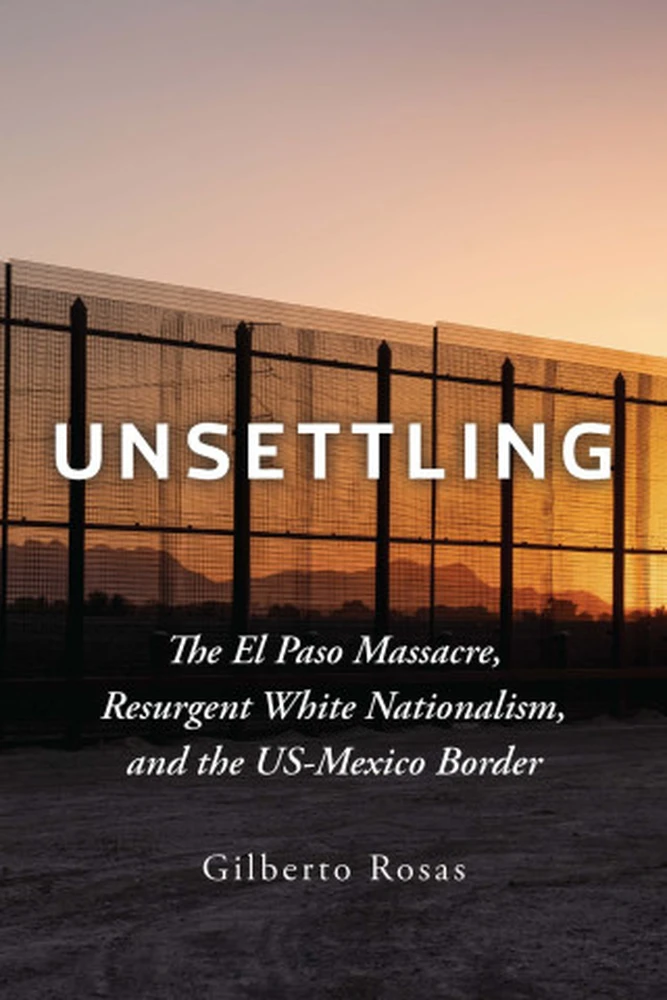
The Department of Latina/Latino Studies is proud to announce that professor Gilberto Rosas’s book Unsettling: The El Paso Massacre, Resurgent White Nationalism, and the US-Mexico Border has received an honorable mention for the 2024 American Ethnological Society Senior Book Prize. The prize recognizes work that is deeply ethnographic and speaks to contemporary social issues with relevance beyond the discipline and beyond the academy.
The prize committee announcement:
“In this searingly incisive work, Gilberto Rosas thinks through the ways in which the US-Mexico border has become the site of intense settler violence and dispossession. This meditation begins with the events of the 2019 mass shooting in El Paso, Texas, which Rosas argues is a consequence of the cultivation of white nationalism that is manufactured through the “crisis” of the border. While Rosas shows how the border is weaponized through policy, family separation, torture and murder, he also compels readers to consider that border violence is far from inevitable. Throughout the work, Rosas models a rigorous ethical standard, introducing the voices of his interlocutors through testimonios and statements that are given equal standing as his own theory and description. Reflexivity is invoked in a sincere and exacting fashion, drawing out the dangerous potential for complicity with border regimes.
Triangulating between a past when the boundary was more porous and could be traversed as a means of sustaining rich multi-national lives, and the present in which the border is heavily regulated, Rosas reminds us that the border is a marker of stolen land. Unsettling challenges readers to think about the on-going violences of settler colonialism, painstakingly crafting an anthropological analysis that develops critiques of settler colonialism and racism that contribute to the rich ethnography. White supremacy appears in the work with a refreshing specificity; this specificity gives way to an account of the intensification of lethality. While Rosas’s ethnography visits familiar sites within border studies, including asylum courts, immigration detention centers, non-profit organizations, and towns and homes on both sides of the border, he trains his attention in surprising and, yes, unsettling, ways.”